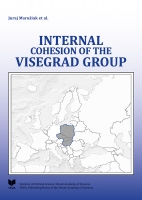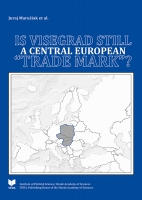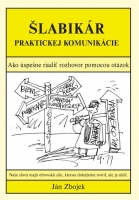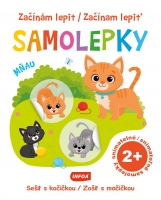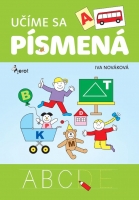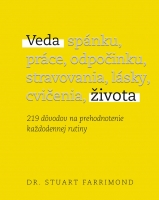Internal cohesion of the Visegrad group
| Vydavateľ: | VEDA (VEDA) | |
|---|---|---|
| Formát: | Kniha | |
| Počet strán: | 180 | |
| Vydanie: | 2013/12 | |
| Poradie vydania: | 1. | |
|
Zvyčajne posielame do 8-10 pracovných dní
Informácie o dostupnosti
Posledná zmena: 10.01.2025 02:57 | ||
| Predajná cena po prihlásení: | 11,05 € | |
|---|---|---|
| Vaša predajná cena : | 13,- € | |
| Prečo sa prihlásiť? | ||
| (všetky ceny sú uvádzané vrátane DPH) | ||
- Komentáre (0)
- Recenzie (0)
- Informuj priateľa
Obsah knihy: Internal cohesion of the Visegrad group
The aim of the publication is to analyze whether there is any Visegrad commonly shared identity or not and what could be the integrative factor of the Visegrad Group. The authors of the publication cover the following topics – historical identities; historical memory; economic cohesion and the level of economic cooperation of the V4 states; the role of the Visegrad topics in the university education and the political culture of the V4 states. The publication shows that the Visegrad cooperation is still based on the interests rather than on the commonly shared identity. However, the citizens of V4 countries already perceive Visegrad as a relevant and meaningful regional group. The fact that Visegrad is considered by the domestic political elites as well as by the political elites abroad as a “brand” or “mark” has a significant contribution to the construction of the regional identity. However, still the motivation of the political leaders to develop the Visegrad cooperation is more pragmatic than based on the awareness of belonging together. The external factors (the EU, gas crisis between Russia and Ukraine in January 2009) and their demand for response still have more efficient impact on the strengthening of V4 cooperation compared to the pressure from inside. V4 could be regarded as more successful project of transition and integration compared to the rest of post-communist states in Central and East Europe both from political and economic perspective. However, there are still substantial differences in the level of economic development, impact of crisis on the V4 states economies, in the living standards, as well as in the political cultures and patterns of political behaviour of citizens. The region of Central and East Europe, including Visegrad, still remains a periphery of the EU, although the EU membership of V4 countries and generally the EU presence in the entire region acts as a factor of stability and contributes to its de-peripheralization. The significant trend for the Visegrad societies is the decreasing level of democracy and growing support of authoritarianism in the region. The de-democratization is not purely the result of sophisticated political programs of certain parts of Visegrad political elites, but it is a result of subconscious practice and pragmatically formulated short-term political targets. However, Visegrad is still a zone of stability, compared to South, South East and East Europe, in part because of the more successful reforms in 1990s and higher efficiency of governance. The peripheralization and marginalization still remains a certain threat for the V4 and Central Europe in general. Such threats are not only the results of the economic or political infrastructure inherited from the Communist past, but their sources consist in some domestic policies implemented since the political changes at the turn of 1980s and 1990s. The improvement of the efficiency of the government’s engagement in the economy is highly recommended. The changes are required in the regional policy as well in order to push the subnational territorial units to formulate their own autonomous approaches to regional development in order to overcome the regional disparities. A significant gap still persists between the “old EU members” and Central European states, including V4, in the financing of the education, science and welfare system. The underdevelopment of these branches could have a negative impact on the future of democracy in the entire region of Central and East Europe.
Detaily o knihe
Názov: Internal cohesion of the Visegrad group
Objednávací kód NA617280
Zobraziť podrobnú špecifikáciuHodnotenie čitateľov
Knihu ešte nikto nekomentoval, budete prvý.
Pridajte svoj komentár
Výber žánrov
Beletria pre dospelých
- Biografické romány
- Dobrodružstvo, thrillery
- Historické romány
- Hobby - deti
- Horor
- Humor, satira
- Komiks
- Krimi, detektívky
- Ostatné - nezaradené
- Poézia
- Rodinné ságy
- Román pre ženy
- Romantika
- Sci-fi, fantasy
- Spoločenské romány
- Svetová klasika
- Svetová súčasná
- YOLi, young adult, new adult
Cestovanie, mapy
Česká literatúra
Deti do 10 rokov
Deti nad 10 rokov
Fond na podporu umenia
Jazyky, vzdelanie
Literatúra faktu
Odborná literatúra
Populárne náučná pre dospelých
- Erotika, sex
- Ezoterika, duchovné náuky
- Fauna, chovateľstvo
- Flora, záhrada
- Hobby - muži
- Hobby - ženy
- Krása, móda, kozmetika
- Krížovky, hádanky, hry
- Kultúra, umenie
- Lexikóny,encyklopédie
- Literatúra faktu
- Medicína, zdravie
- Obrazové publikácie
- Partnerské vzťahy, rodina
- Právo, sociológia
- Šport & hry
- Varenie, nápoje, diéty
- Veda a technika
- Záhady, tajomno
- Zdravý spôsob života
- Životná pomoc, psychológia
- Životné prostredie, príroda
Slovenská literatúra
Darčekové predmety a ostatné
- Angličtina (tituly v Anglickom jazyku)
- Darčekové predmety
- Diáre
- Ezoterické predmety
- Hračky
- Hry ostatné
- Hry spoločenské
- Hry vzdelávacie, náučné
- Kalendáre
- Karty
- Kreativita
- Kuchyňa, domácnosť, záhrada
- Magnetky
- Omaľovánky
- Papiernický tovar
- Pexesá
- Puzzle
- Razítka, pečiatky
- Rôzny tovar
- Samolepky
- Školské diáre
- Učebnice
- Výtvarné potreby
- Záložky
- Zdravie, starostlivosť o telo
Hovorené slovo
Hudobné CD
- Domáci rock&pop
- Etno, jazz
- Film, muzikál
- Folk & country
- Klasická hudba
- Ľudové piesne
- Oldies
- Pesničky pre deti
- Relaxačná hudba
- Vianočná hudba
- Zahraničný rock&pop





